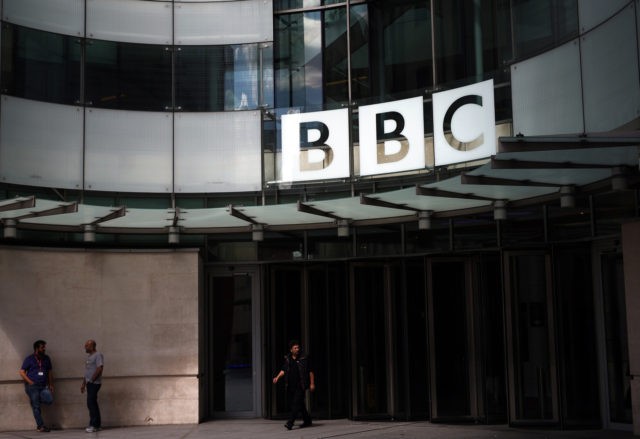The BBC is facing a “crisis” as over the past two years, one million households in the UK have stopped paying the television tax which supports the publicly-funded broadcaster.
According to the annual report from the British Broadcasting Corporation, 700,000 British households stopped paying for the TV licence that funds the BBC. This is on top of the 300,000 households which dropped the service in 2019.
The chairman of the House of Commons media select committee, Conservative MP Julian Knight told The Times that it is “clear the BBC is haemorrhaging support amongst a significant proportion of the British public.”
“The broadcaster — if this trend continues — could soon reach vanishing point where evasion is so widespread as to undermine faith in the TV licence system. This is fast becoming a crisis for the BBC,” Knight added.
The recently installed chairman of the BBC, Richard Sharp defended the broadcaster’s performance, saying “against a landscape of unprecedented market pressures, it has kept delivering world-class programming across all genres.”
The drop in revenue comes on top of the 260,000 elderly pensioners who have stopped paying their tv licence fees after the enforcement of the tax was paused during the coronavirus pandemic.
Delingpole: This Woke Comedy Is Why We Hate the BBC https://t.co/tihBUbSNRo
— Breitbart London (@BreitbartLondon) June 3, 2021
While over-75s in the UK were previously granted a free TV license since 2000 — with the government picking up the difference in the budget — the BBC said in 2019 that it would begin charging the elderly again to use their services.
This was put on hold during the coronavirus pandemic, with the BBC offering a “transition period” in which pensioners would not have to pay the tax. Last month, the publicly funded broadcast announced the end of the scheme, even going on to warn that it would send “enforcers” to collect the £159 yearly fee from the elderly.
Those who are found to be watching live television or the BBC iPlayer can face fines of up to £1,000 or even imprisonment. Aside from the so-called enforcers, the TV Licencing authority also employs “detection vans” that can “detect the use of TV receiving equipment at specifically targeted addresses within minutes.”
Despite offering a grace period and the fact that the broadcaster produced less content during the pandemic, the BBC raked in £250 million in licence fees from people over the age of 75, The Sun reported.
Prime Minister Boris Johnson’s government hinted last year that it would decriminalise the non-payment of the licence fee, the Tory government has since shelved the plans, saying merely that it would keep the idea under “active consideration”.
The director of the Silver Voices senior citizen campaign group, Dennis Reed said that the government should step in to protect pensioners, saying: “The BBC is calling the people carrying out these visits ‘customer support officers’ but their job is to enforce payment. They will be asking people why they haven’t got a licence.
“Clearly, the BBC is not going to do anything other than enforce the licence fee. It is now time for the government to act.
“I’m sure they don’t want to see senior citizens in their 80s and 90s, who have paid tax throughout their lives, fined up to £1,000 and carted off to jail.”
750,000 Pensioners Resist Paying BBC TV Tax: Report https://t.co/tgpaqzObMd
— Breitbart London (@BreitbartLondon) February 8, 2021
Follow Kurt Zindulka on Twitter here @KurtZindulka

COMMENTS
Please let us know if you're having issues with commenting.